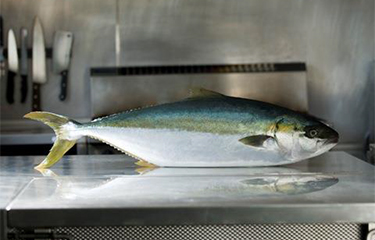Port Lincoln, South Australia-based yellowtail kingfish farmer Clean Seas is undertaking an operational review following an AUD 7.7 million (USD 5 million, EUR 4.6 million) loss in Q1 2024.
The company’s review comes alongside a successful AUD 9.5 million (USD 6.3 million, EUR 5.7 million) non-underwritten private placement, which it said will be used for working capital to “facilitate the right sizing” of the business after its quarterly loss. Clean Seas said that high input costs for growing biomass, coupled with lower than expected sales demand, led it to lose money after it saw success in 2023 with a turnaround strategy that resulted in a gross profit of AUD 14.6 million (USD 9.6 million, EUR 8.8 million) and operating earnings before interest, taxes, depreciation, and amortization of AUD 3.7 million (USD 2.4 million EUR 2.2 million).
“Whilst we successfully achieved many of the goals that we set ourselves over the last three years, including transitioning the business to profitability and positive cash flows last year, the emergence of more challenging market conditions and higher input costs has put further progress at risk,” Clean Seas CEO Rob Gratton said in a release.
Gratton noted Clean Seas increased its sales revenue despite a lower sales volume in Q1 2024, and constrained supply of fishmeal and fish oil that has led to increases in feed prices, an increase in competitive pressure across both domestic and international markets leading to decreased demand for its products, and a “shift in general market conditions."
As a result of the difficulties, the company instituted a trading halt on 22 November while it engaged in its two-tranche private placement. The first tranche of the placement will constitute AUD 6.7 million (USD 4.4 million, EUR 4 million), to be settled on 1 December 2023, and the second will by AUD 2.8 million (USD 1.8 million, EUR 1.7 million), which will be settled on 17 January 2024 following an extraordinary general meeting – so long as shareholders approve the settlement.
The funding will go toward an operational review, through which Clean Seas plans to analyze its biomass and production levels and targets, and determine how to consolidate and maximize its farming activities and right-size the business to increase its profitability.
“The issues facing the company have driven us to reassess our strategy to create a more secure platform that is resilient at its optimal production output, adequately manages operating costs, and drives free cash flows,” Clean Seas Board Chair Travis Dillon said. “In pursuing our growth strategy, our cost base has become disproportionate to our earnings profile and the continued pursuit of this strategy would require significant levels of infrastructure and working capital investment.”
As the company undergoes its review, it said it plans to reduce its current biomass levels by 800 metric tons (MT), which it said will result in savings of AUD 10 million (USD 6.6 million, EUR 6 million) per year in feed costs and working capital. The reduction will allow Clean Seas to consolidate its farming activities and support a sales volume of 3,000 MT of production per year with a focus on premium markets. The reduction will result in impairments to its inventory of between AUD 13.5 million and AUD 14.5 million (USD 8.9 million and USD 9.5 million, EUR 8.1 million and EUR 8.7 million) in FY 2024.
The farm consolidation will also reduce the business’s operational footprint, which Clean Seas said should reduce its spending by AUD 8 million (USD 5.3 million, EUR 4.8 million). It aims to perform further rightsizing to reduce operating costs by up to AUD 5 million (USD 3.3 million, EUR 3 million) across contractor, labor, and input costs.
“Our focus in restructuring Clean Seas is to deliver a high-performing, efficient, and stable business, that manages operating and financial risk while continuing to leverage our high-quality kingfish and unique provenance that can only come from growing a native fish in its natural waters of the Spencer Gulf,” Gratton said. “In playing to our strengths, we have the opportunity to continue towards our goal of creating a financially resilient business.”
Photo courtesy of Clean Seas Seafood







